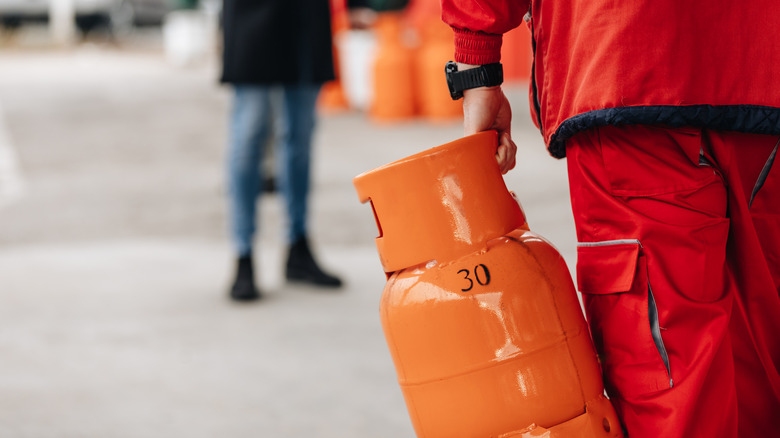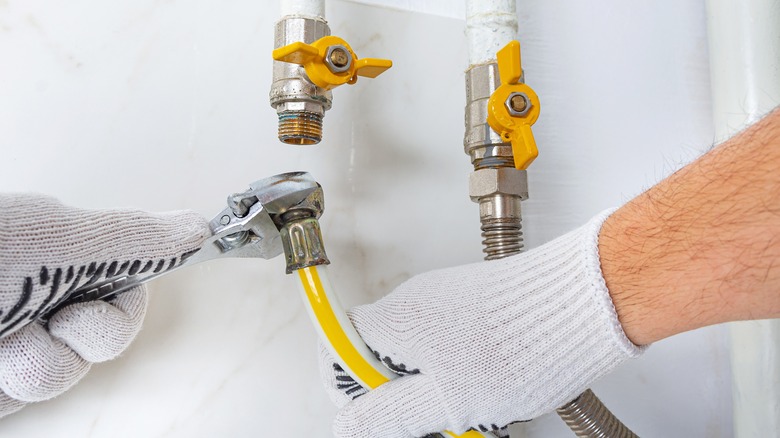Must-Know Safety Measures To Prevent Gas Explosions At Home
Gas explosions can be quite dramatic, but we want to keep the drama for the movies, not our homes. Gas is convenient since it is often used for cooking and heating, but it can also be dangerous if not taken care of. Explosions can cause serious injuries, damage your home, and ruin your day faster than you can say, "Where's my insurance?" To help you avoid such disasters, you should regularly check for leaks, store and handle flammable materials correctly, and install leak detectors.
That first tip is one of the best ways to keep your home safe from gas explosions. Leaks can happen anywhere there is gas in your home, like near the stove or water heater. Routinely inspect pipes, fittings, and appliances for any signs of wear or damage like rust, corrosion, or cracks. Also, consider doing a soap test: Mix soap with water and apply it to the pipes. If you see bubbles forming, you've found a leak. Once you do, turn off the gas supply and call a professional to fix it.
Another important safety measure is to store and handle flammable materials correctly. If you have things like gasoline, paint, or common cleaning products, keep them away from heat sources and out of the kitchen. Lastly, install gas leak detectors in different areas of your house. They work by sounding an alarm when they detect gas, giving you time to take action. Remember to check their batteries regularly — don't be that person who finds out their detector isn't working during a gas leak.
Signs of a gas leak
Even if you take all the safety measures, it's good to know the signs of a gas leak in your home. The first sign is a smell similar to rotten eggs or sulfur. Gas companies add a chemical called mercaptan to natural gas to make it smell bad so you can detect a leak. If you catch a whiff of something foul, don't ignore it. Open windows, leave the house, and call for help.
Another sign to watch out for is hissing sounds. If you hear a faint hissing noise near your gas appliances, it's probably not a friendly snake — the sound could indicate that gas is escaping from the line. Check around your appliances and the piping for any visible signs of leaks. If you're unsure, it's always best to call a professional. Lastly, watch out for white mist or fog near your appliances. This fog occurs when gas leaks and cools rapidly, creating condensation.

